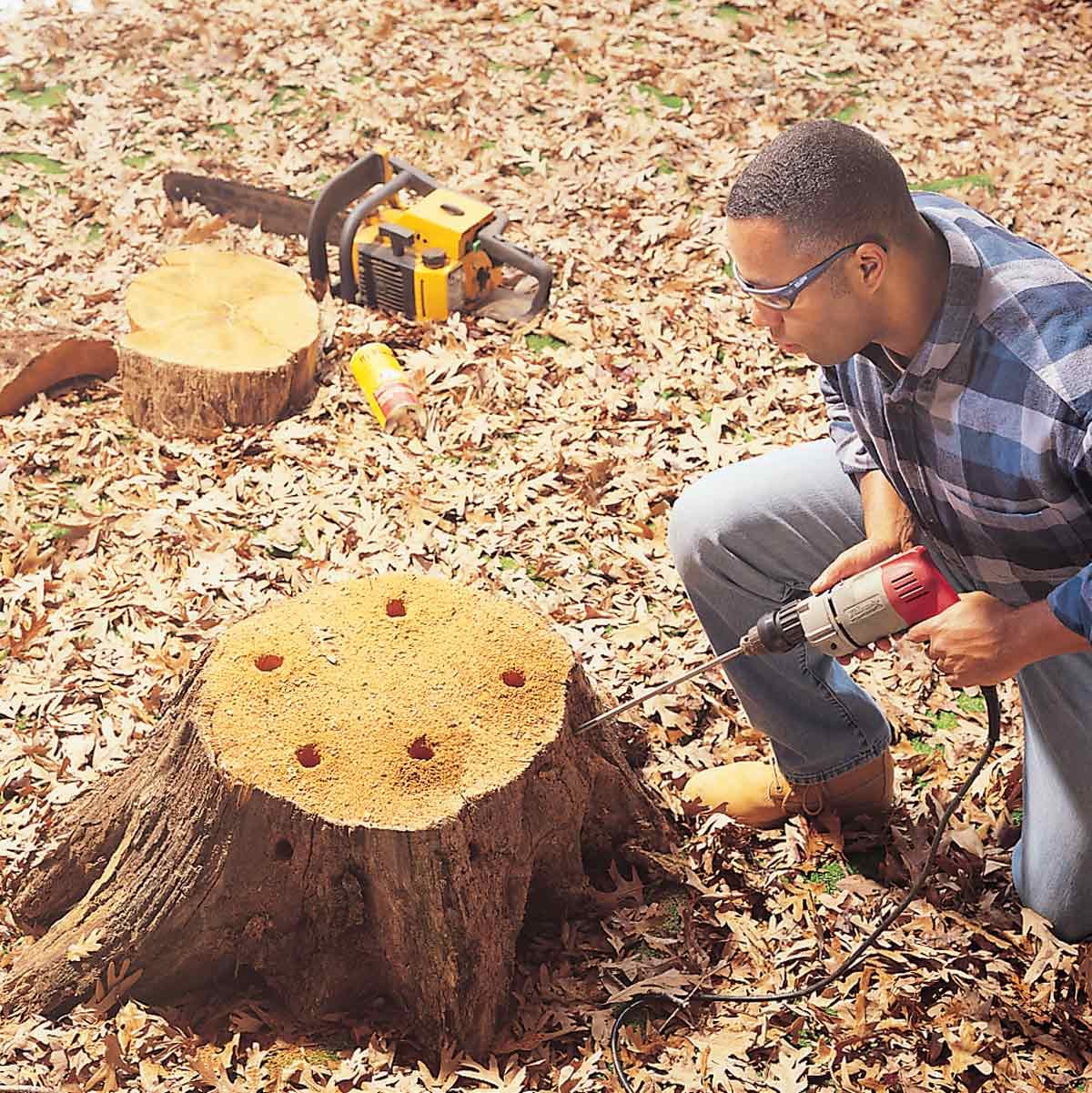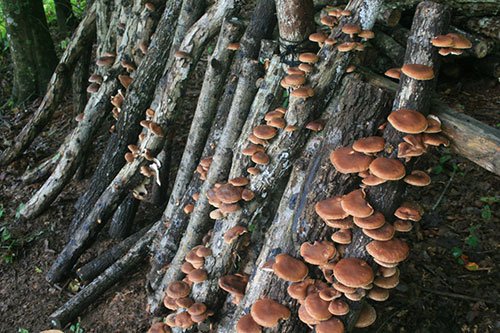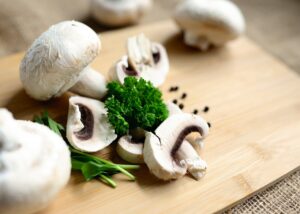Ur Genious
UNLEASH THE POWER OF FUNGi
Myco-landscaping
Myco landscaping is a sustainable approach that uses beneficial fungi to promote plant growth and improve soil health. By partnering with plant roots, these fungi enhance nutrient absorption and water efficiency.
Mushrooms are the backbone of the biological community, they help create a treasure we call soil. Their enzymes digest solid wood and we can eat them. They also break down organic matter and improve soil quality. With myco landscaping, you can create beautiful and eco-friendly outdoor spaces that thrive naturally.
What is Mycorrhizae?
A Plant Growth Promoter
Mycorrhizae are amazing symbiotic partnerships between plant roots and fungi that enhance nutrient and water uptake by plants. They come in various forms and are influenced by factors like the type of plant and the surrounding environment.
These fungi create an underground network, aiding in nutrient and water exchange between plants. When a cloned plant joins this network, it inherits access to valuable resources cultivated by the parent plant, providing a head start in adapting to your garden’s unique conditions.
Key Benefits of Mycorrhizae:
At Ur Genious, we’re excited to share the remarkable potential of mycorrhizal fungi to revolutionize plant growth and contribute to environmental restoration. Mycorrhizae are amazing symbiotic partnerships between plant roots and fungi that enhance nutrient and water uptake by plants. They come in various forms and are influenced by factors like the type of plant and the surrounding environment.
- Drought resistance
- Pest resistance
- Plant growth promotion
- Environmentally friendly
Mycorrhizae
Nutrient Uptake Enhancement:
Through this remarkable partnership, mycorrhizae significantly enhance a plant’s nutrient absorption capacity. This results in healthier, more robust plants with the potential for increased yields.
Mycorrhizae
Drought Resilience:
In an era where climate unpredictability is on the rise, mycorrhizae play a pivotal role. They help plants endure drought conditions by improving water uptake efficiency and reducing water loss through transpiration.
Mycorrhizae
Boosting Disease Resistance:
Mycorrhizae aren’t just passive participants; they actively fortify the plant’s natural defenses, making it more resilient against diseases and pathogens.
Mycorrhizae
Soil Structure Enhancement:
Beneath the surface, mycorrhizae are hard at work, contributing to soil health. They aggregate soil particles, creating pore space that enhances water and nutrient availability.
Mycorrhizae
Accelerated Rooting of Cuttings:
Mycorrhizae can serve as a natural rooting agent for new cuttings, helping them establish roots more rapidly. It’s nature’s way of nurturing new growth.
Mycorrhizae
Environmental Friendliness:
By reducing the need for chemical fertilizers and pesticides, mycorrhizae promote sustainable and eco-friendly gardening practices.
Benefits of Mushroom Inoculation
Mushroom
Nutrient Cycling & Soil Enrichment:
Mushrooms play a vital role in breaking down organic matter like dead leaves, wood debris, and plant residues. As they decompose these materials, mushrooms release essential nutrients like nitrogen, phosphorus, and potassium back into the soil, enriching it and providing a steady supply of nutrients for plant uptake.
Mushroom
Improved Soil Structure:
The mycelium network created by mushrooms helps bind soil particles together, creating aggregates that improve soil structure. This enhances soil porosity, water infiltration, and air circulation, which are crucial for healthy root development and overall plant growth
Mushroom
Biological Pest Control:
Certain mushrooms, such as species of Trichoderma and Metarhizium, act as natural antagonists to plant pathogens and pests. They colonize the soil and protect plant roots by outcompeting harmful organisms or producing compounds that inhibit their growth. This natural defense mechanism can help reduce the need for chemical pesticides in the garden.
Mushroom
Accelerated Decay of Tree Stumps:
Wood-decay fungi, commonly known as saprotrophic mushrooms, play a key role in decomposing dead wood, including tree stumps. By breaking down lignin and cellulose, these fungi accelerate the decay process, eventually turning the stump into nutrient-rich soil that benefits surrounding plants.
Mushroom
Accelerated Rooting of Cuttings:
Some mushrooms produce bioactive compounds with antimicrobial properties, including polysaccharides, terpenoids, and phenolic compounds. These natural antibiotics help protect plant roots from soil-borne pathogens, reducing the risk of diseases and promoting plant health.
Mushroom
Carbon storage & Biodiversity:
Mushrooms contribute to carbon sequestration by decomposing organic matter and storing carbon in the soil. Additionally, mushrooms support biodiversity by providing habitat and food sources for various organisms, including beneficial insects and soil microbes. This enhances ecological resilience and fosters a healthy, balanced ecosystem in the garden.
Tree stump digestion
Stump Inoculation
Speed up the process of tree stump degradation with mushroom inoculation.

Elevate Your Landscape Today
Ready to witness the transformative power of mushroom inoculation? Embrace efficient tree stump degradation, ecological harmony, and landscape revitalization. Join us in fostering a thriving environment. Contact us now to schedule your mushroom inoculation service and embark on a journey towards a greener, healthier world. Your landscape awaits its second chance.
Mushroom logs
Log Inoculation

Unleash Nature's Potential
Experience simplicity with our hardwood dowel mushroom spawn. Easily tap these dowels into drilled holes on logs, no special tools needed. Whether you’re a seasoned gardener or just starting, this user-friendly solution is available in small quantities, making it a perfect fit for your garden projects. Elevate your gardening game with the magic of mushrooms. Dive in and see your garden flourish like never before.
Wine Cap Mushroom
(Stropharia rugosoannulata):
Cultivation Difficulty: Easy to moderate
Cultivating Wine Cap mushrooms can help in recycling organic waste, such as wood chips and straw, promoting sustainable practices.
Benefits: Wine Cap mushrooms are rich in protein, fiber, and essential minerals. They also contain various bioactive compounds with potential antioxidant and anti-inflammatory effects.

Lion's Mane Mushroom
(Hericium erinaceus):
Cultivation Difficulty: Moderate to difficult
Cultivation of Lion’s Mane mushrooms can help recycle wood waste and promote sustainable forestry practices.
Benefits: Lion’s Mane mushrooms are rich in bioactive compounds that may support cognitive function, promote nerve growth, and have potential neuroprotective effects. They are also a good source of protein, fiber, and various minerals.

Button Mushroom
(Agaricus Bisporus):
Cultivation Difficulty: Easy to moderate
Environmental benefits include the ability to recycle agricultural waste and contribute to soil health through mycelium growth.
Benefits: Rich in vitamins, minerals, and dietary fiber. Supports immune function, aids digestion, and promotes cardiovascular health.

Shiitake Mushroom
(Lentinula edodes):
Cultivation Difficulty: Moderate
Cultivation of shiitake mushrooms can help recycle wood waste and promote sustainable forestry practices.
Benefits: Contains bioactive compounds that support immune function, possess antimicrobial properties, and may have anticancer effects. Shiitake mushrooms are also a good source of B vitamins and minerals.
Beech Mushroom
(Hypsizygus tessellatus):
Cultivation Difficulty: Moderate
Cultivating Beech mushrooms can contribute to recycling agricultural waste, such as sawdust, and provide an alternative to wild harvesting.
Benefits: Beech mushrooms are a good source of protein, dietary fiber, and vitamins. They contain bioactive compounds that may have antioxidant and immune-boosting properties.

Oyster Mushroom
(Pleurotus ostreatus):
Cultivation Difficulty: Easy
Oyster mushroom cultivation can utilize agricultural and forestry waste products, reducing environmental waste.
Benefits: Oyster mushrooms are low in calories and fat while being rich in protein, fiber, and various vitamins and minerals. They contain antioxidants and compounds that support immune function and have potential antimicrobial and antitumor properties.

King Oyster Mushroom
(Pleurotus eryngii):
Cultivation Difficulty: Moderate to Difficult
Cultivation of king oyster mushrooms can contribute to waste reduction by utilizing agricultural residues.
Benefits: King oyster mushrooms are a good source of protein, dietary fiber, and essential minerals. They contain bioactive compounds that may have antioxidant, anti-inflammatory, and cholesterol-lowering effects.

Saffron Milk Cap
(Lactarius deliciosu):
Cultivation Difficulty: Moderate to Difficult
Cultivating Saffron Cap mushrooms offers an opportunity for sustainable and local food production.
Benefits: Rich in essential nutrients like vitamins (including vitamin D), minerals, and dietary fiber. Contains antioxidants that can help protect against oxidative stress and promote overall health.Adds a unique and distinct flavor and aroma to culinary dishes. Known for its vibrant red color, making it visually appealing in various dishes.
Reishi Mushroom
(Ganoderma lucidum):
Cultivation Difficulty: Difficult
Reishi mushroom cultivation can help recycle wood waste and promote sustainable forestry practices.
Benefits: Reishi mushrooms are known for their potential immune-boosting properties and have been used in traditional medicine for centuries. They contain various bioactive compounds with potential antioxidant, anti-inflammatory, and anticancer effects.




